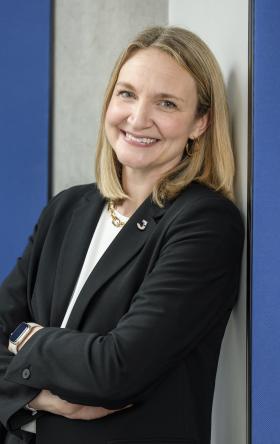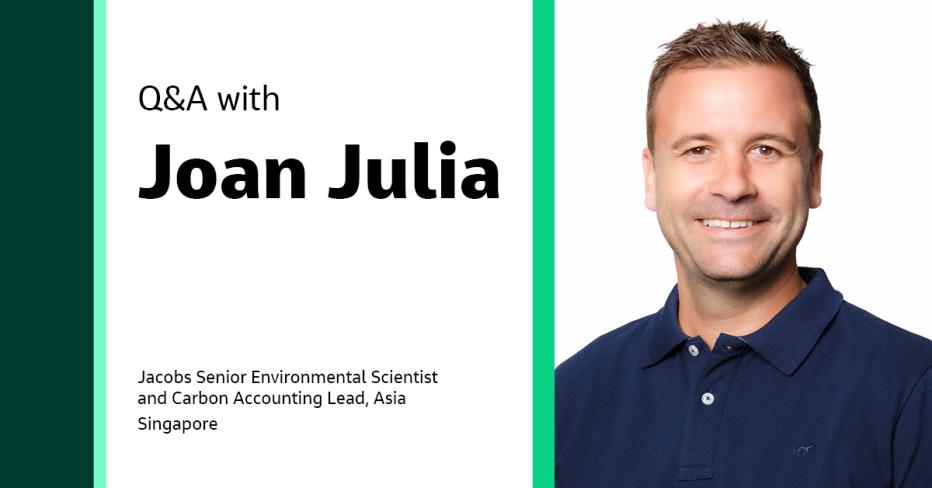




As a purpose-led company, we know we have a pivotal role to play in addressing the climate emergency. We consider this not only good business, but our duty to channel our technology-enabled expertise and capabilities toward benefitting people and the planet.



We work in partnership, delivering some of the most challenging, diverse and innovative projects and programs globally across multiple sectors. We integrate complex interfaces across planning, procurement and delivery to help unlock better social, environmental and economic outcomes from mega and giga projects.



For more than 30 years, Jacobs has been responsible for planning and implementing Lead and Copper Rule-related strategies which protect millions of people in the U.S. and Canada. Our work includes enhanced water quality monitoring strategies, sampling plan development, harvested pipe-scale analysis, lead service line inventories and replacement plans, corrosion control studies and the incorporation of equity and environmental justice considerations into compliance programs.



As our clients navigate the digital transformation and growing cyber risks, we have positioned ourselves at the forefront of this growth, adding digital capabilities, products and tools to serve a growing set of customers.



Sit down with our visionary team of thinkers, dreamers and doers to see what a day in the life is like.



A curated selection of some of the top-listened to and trending podcast episodes from our popular If/When podcast series, which has over 7M downloads to date.



Together with our visionary partner, PA Consulting, we're establishing our position in high end advisory services, creating a springboard to expand in high value offerings beyond the core.


At Jacobs, we're challenging today to reinvent tomorrow by solving the world's most critical problems for thriving cities, resilient environments, mission-critical outcomes, operational advancement, scientific discovery and cutting-edge manufacturing, turning abstract ideas into realities that transform the world for good. With approximately $16 billion in annual revenue and a talent force of more than 60,000, Jacobs provides a full spectrum of professional services including consulting, technical, scientific and project delivery for the government and private sector.



Jacobs. A world where you can.



As climate change threatens water security around the world, more communities are turning to water reuse as a resilient water supply solution and embracing the OneWater principle that all water has value. Jacobs has been supporting clients with water reuse programs for decades, beginning with the first applications of advanced wastewater treatment technologies in the 1960s. We provide our clients with a full range of services, from water reuse feasibility studies to design, construction and operations.



The only certainty about the future is uncertainty. Resilience is an attribute of a smarter planet, and requires planning and adapting ahead of potential threats. We help our clients survive, recover, adapt and thrive.



Jacobs is working to help clients across the United States secure federal funding for projects that make our cities and communities more connected and sustainable. Working hand-in-hand with clients from coast to coast and everywhere in between, Jacobs develops bold, innovative solutions to address the nation’s toughest challenges.



Now more than ever, we appreciate the hard work, sacrifice and dedication of the medical profession in ensuring the health and safety of our communities.



Together, we are stronger. Together, we can transform the future.



We’ve provided design-build services to the water sector for over 25 years and delivered more than 150 projects. We offer fully integrated design-build and design-build-operate capabilities to tackle the most complex water challenges and work in close collaboration with our clients.



Stories that capture our partnerships and innovative impact for a more connected, sustainable world



Can you tell us a bit about your role at Jacobs and what’s keeping you busy these days?
I’m a Senior Environmental Scientist specializing in air dispersion modeling and human health risk assessment. I’m also the Carbon Accounting Lead Asia working on carbon management projects, including embodied carbon assessment and scope 1, 2 and 3 greenhouse gas emissions assessment.
Tell us more about your career background. What sparked your interest in a STEAM career in decarbonization?
I’m a pharmacist by education and worked on human health risk assessments related to soil and groundwater pollution in France. After moving to Singapore, I started to work on ambient air quality and air dispersion modeling.
We live in a world where climate change is no longer a distant threat; it’s a reality, and decarbonization is one of the solutions to reduce global warming. I’ve experienced this first-hand, working on carbon management projects and being part of the solution over the past few years.
What do you think are the biggest challenges facing global decarbonization efforts?
It depends on the sectors, countries/regions and their goals but data accessibility and collection are often challenging. Collecting relevant and accurate data is a complex undertaking. It can be further exacerbated by the number and diversity of stakeholders involved, as well as the need for quality assessment and compliance internally and externally. It is a combined and cross-business unit effort generally including facilities, finance, operations, procurement, sustainability functions and external partners.
Adopting a pragmatic approach and acknowledging that there is no perfect data is an excellent way to start the decarbonization journey. Workshop sessions can be a valuable tool to gather relevant information within the organization and share best practices around data accessibility and collection.
Can you tell us more about the decarbonization initiatives, solutions and projects you’re working on with our clients?
I’ve supported clients in calculating embodied carbon (cradle to construction completion) for an existing hyperscale data center facility in Singapore. Embodied carbon makes up 11% of all carbon emissions globally. In the next 30 years, it’s expected to be responsible for half of the entire carbon footprint of new construction.
The objectives of this study were to understand the current baseline of embodied carbon and identify key decision points and the steps or methods to reduce embodied carbon.
Interestingly, this embodied carbon assessment includes mechanical, electrical and plumbing (MEP) systems specific to data centers, such as generators, power train units, switchboards, switchgear, etc., in addition to the data center shell (building.)
I’m also supporting a client to develop a Multi-Criteria Decision Analysis framework (MCDA) to assess the relative carbon footprint for climate resilience infrastructure planning. The MCDA covers several coastal and drainage protection measures, from sea walls to percolation systems.
Scaling up to meet the demands of urban growth while decarbonizing the built environment has real implications for how we design buildings. Our latest paper evaluates the feasibility and perceived value of a range of solutions delivering embodied and operational carbon emissions reduction in buildings
Where is the most significant opportunity in decarbonizing our key sectors?
There are many, but Europe’s increase in fossil fuel prices is a key catalyst for a global energy crisis. In the years ahead, gas prices will likely remain high and volatile.
Higher fossil fuel prices can help drive the case for low-carbon alternatives – for instance, it can make low-carbon alternatives more cost competitive and encourage governments to implement policies and regulations that support clean investments. The potential acceleration of clean investment by the public and private sectors can create several opportunities for Jacobs.
People would be surprised to know that ….
I (almost) have the same first name as my wife (Joanne.)
What’s something you learned in the last week?
It takes 6-to-7 hours to reach Kuala Lumpur from Singapore by bus. I discovered this last week when I went with my son and his rugby team/club for an international tournament.
I also started using the R OpenAir software package that helps analyze, interpret and understand air quality data — or more generally atmospheric composition data.
What is your proudest career moment?
My move to Singapore in 2010. My wife relocated to Singapore in November 2010, so we left everything behind except our 5-month-old son Tom 😊. This move enabled us to discover other people, cultures, ways of life and work.
When you’re not at work, you enjoy…
Traveling, sports such as touch rugby, stand-up paddle and woodworking.
What do you enjoy most about being part of #OurJacobs?
Meeting new people. I’m always impressed with how Jacobs can help connect people all around the world.
Joan Julia has more than 14 years of experience in environmental, air quality and human health risk assessment as well as embodied carbon and Scope 1, 2, 3 greenhouse gas emissions assessment for various industries.
He is actively involved in Greenhouse Gas Inventory, Embodied Carbon Assessment Study, Air Quality Study (AQS), Environmental Impact Assessment (EIA), Environmental Impact Study (EIS), Human Health Risk Assessment (HHRA), Pollution Control Study (PCS), and Site-Specific Impact Assessment (SSIA) for various industries and government clients in Singapore and overseas.
Joan graduated with a Master of Science degree in environmental health risk assessment and management from the University Paris XI, Paris V and the National School of Public Health, France. Later he earned his Ph.D. (PharmD) from the University Paris V.
What drives you drives us as we work to build a better world – together. At Jacobs, every day is an opportunity to make the world better, more connected, more sustainable. We’re always looking for dynamic and engaged people to join our team. Bring your passion, your ingenuity and your vision.